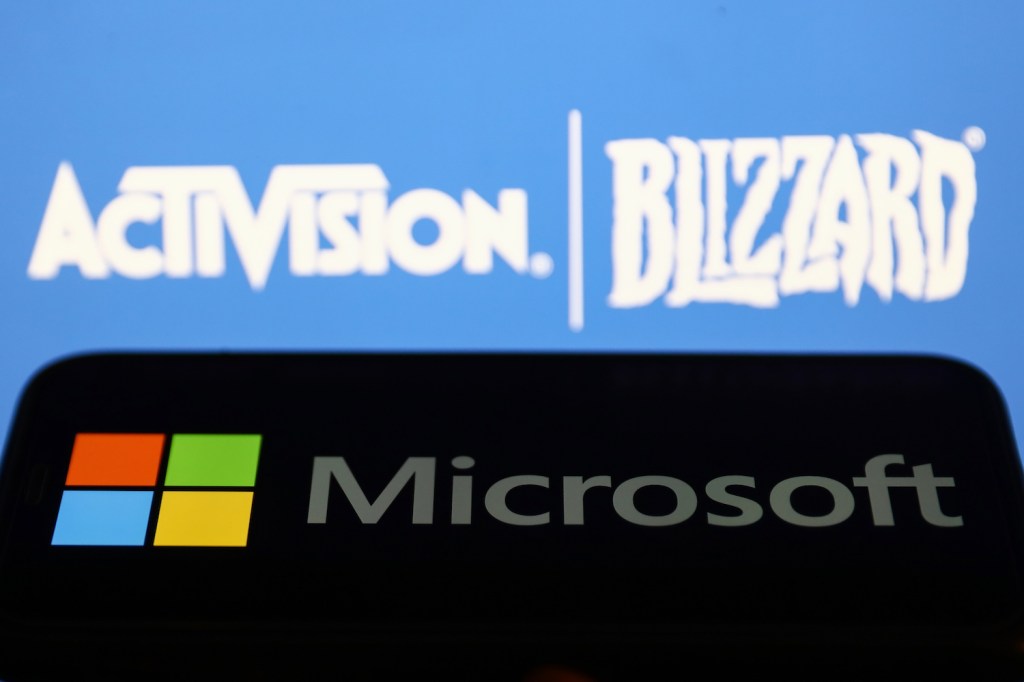The U.K.’s antitrust regulator has confirmed its April decision to block the $68.7 billion Microsoft-Activision gaming mega-merger — rejecting arguments by Microsoft that it should overturn its original prohibition because of developments since the original decision. However, in a simultaneous announcement today, the Competition and Markets Authority (CMA) has opened a new investigation into a restructured proposal Microsoft has submitted for review.
Under the restructured proposal, the tech giant would not acquire the cloud streaming rights to all current and future Activision games released during the next 15 years (excluding in the European Economic Area [EEA]). Instead the cloud streaming rights will be divested to Ubisoft prior to Microsoft’s acquisition of Activision.
In a statement, Sarah Cardell, the CMA’s chief executive, described the revised proposal as “substantially different” compared to the deal the regulator has rejected:
Microsoft has notified a new and restructured deal, which is substantially different from what was put on the table previously. As part of this new deal, Activision’s cloud streaming rights outside of the EEA will be sold to a rival, Ubisoft, who will be able to license out Activision’s content to any cloud gaming provider. This will allow gamers to access Activision’s games in different ways, including through cloud-based multigame subscription services. We will now consider this deal under a new Phase 1 investigation.
This is not a green light. We will carefully and objectively assess the details of the restructured deal and its impact on competition, including in light of third-party comments. Our goal has not changed — any future decision on this new deal will ensure that the growing cloud gaming market continues to benefit from open and effective competition driving innovation and choice.
Speaking to BBC Radio 4’s “Today” program this morning to summarize the developments, she also said:
There are two important developments that we’ve announced today: The first is that we have finalized the legal order that prohibits the original deal between Microsoft and Activision. That deal cannot proceed.
What Microsoft have announced separately today is a new restructured deal which appears to be substantially different from the deal that was previously on the table. Importantly, it excludes the cloud streaming rights in relation to all of Activision’s games for the next 15 years. Those rights will instead be sold separately by Activision to Ubisoft, which is an independent gaming company.
The CMA’s preliminary view of the revised proposal is that it will allow games to access Activision games in different ways, including through cloud-based multigame subscription services, buy-to-play or other business models.
It also suggests the restructured proposal could enable Activision’s titles to be made available on cloud gaming services that run a non-Windows operating system, such as Linux, as it notes the proposal would enable Ubisoft to require Microsoft to adapt Activision’s titles to run on other OSes (if it pays a fee).
The regulator will now spend several weeks weighing the detail via its Phase 1 investigation to firm up a view. Although the mood music coming out of the CMA today sounds upbeat.
“It’s a substantial portfolio of new and future games,” suggested Cardell of the restructured proposal, adding:
Our concern, as you might remember previously, was that the original deal would restrict competition in this really important developing new market for cloud gaming.
We were concerned that Microsoft would have too much control over the way that market was developing. What Microsoft have announced today is that the deal will not give them any control over those rights. Instead those rights — the ability, for example, for Ubisoft to enter into any kind of licensing deal with a number of different cloud gaming providers supporting different business models; subscription services for example, or providing cloud gaming over a non-Windows operating system, which was another of our previous concerns — that creates those opportunities.
I should say this is just the beginning of a new investigation. We haven’t reached a final view. We will be carefully scrutinizing this new deal and importantly, seeking input from third parties from companies who have an interest in this deal, before we reach a final decision.
As we have said all along, it’s critically important in this new area of cloud gaming that this market remains open for effective competition — that gamers can benefit from innovation, from choice — that’s been our priority throughout this process. And it remains our priority as we go through this new stage of investigation.
If accepted, the proposal would require Ubisoft to compensate Microsoft for the cloud streaming rights to Activision’s games through a one-off payment and a market-based wholesale pricing mechanism, including an option that supports pricing based on usage, per the CMA.
The U.K. competition authority has found itself isolated among major global regulators in seeking to block the deal after the European Union green-lit the mega-merger in May — and again last month, after U.S. courts blocked an attempt by the FTC to sue to stop the deal.
The CMA signaled last month that a restructured deal could offer Microsoft and Activision a route out of the impasse, suggesting it could lead to a fresh merger investigation.
That fresh probe is now taking place — with a deadline to complete the review falling on the same day (October 18) Microsoft and Activision have given themselves to complete the acquisition (following an extension to their own deadline which was agreed last month).
The exclusion of the EEA from the divested cloud streaming rights proposal the CMA is now considering is presumably related to the EU’s decision to green-light the mega-merger back in May. As part of commitments Microsoft offered to obtain clearance from EU regulators, it pledged to allow consumers in the EEA to stream all current and future Activision games via any cloud-based game streaming service for the next 10 years.
Microsoft, Activision give themselves three more months to close $68.7BN mega-merger
Europe greenlights Microsoft’s $68.7B Activision acquisition































Comment